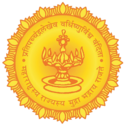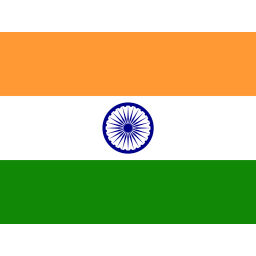Address at the valedictory function of the Yuva Bharat Policy Parliament organized by the Public Policy Research Centre, Delhi
Address by Shri CH Vidyasagar Rao, Governor of Maharashtra at the valedictory function of the Yuva Bharat Policy Parliament organized by the Public Policy Research Centre, Delhi in association with and at Knowledge Excellence Centre, Rambhau Mhalgi Prabodhini, Mumbai, Keshav Srushti, Uttan, Bhayander, Dist Thane at 1100 hrs on Monday, 21 March 2016
Dr Vinay Sahasrabuddhe, Director General, Rambhau Mhalgi Prabodhini, Shri Aniruddha Deshpande, Chairman, Rambhau Mhalgi Prabodhini, Dr Sumeet Bhasin, Director, Public Policy Research Centre, Shri Abhishek Sharma, Coordinator, all the student delegates, members of the Rambhau Mhalgi prabodhini, sisters and brothers,
I deem it an honour to associate myself with the Yuva Bharat Policy Parliament and to interact with you, the members of this Parliament.
At the outset I would like to congratulate the Public Policy Research Centre and the Rambhau Mhalgi Prabodhini for their thoughtful initiative of hosting this Yuva Bharat Policy Parliament and giving an opportunity to some of the brightest young minds in the country to contribute to the policy making process.
I understand that 140 youth participants coming from premier institutions such IIMs, IITs, Symbiosis, MIT College of Good Governance, Delhi, Mumbai and other Universities have been selected for the Yuva Bharat Policy Parliament.
I would like to convey my heartiest congratulations to all the delegates who have been selected as Parliamentarians for the three day brainstorming session.
Dear friends,
India has emerged as the most youthful nation in the world. India’s demographic dynamism will position us as the largest supplier of workforce in the world in another decade. By 2021, the proportion of working age population is expected to be 64 percent.
We have the largest young population in the world. By 2020, the average age of an Indian will be 29 years, 8 years younger than an American or a Chinese.
As youths of the country, you are the destiny of the nation. You are the future of the nation. I am therefore happy that this Parliament of youths has been called upon to deliberate on two flagship programmes of the Government, namely ‘Make in India’ and ‘Swachch Bharat Abhiyan’.
I was pleased to note that three Committees were formed by the participants under Make in India theme while two committees were formed to discuss and study various aspects of the ‘Swachch Bharat Abhiyan’.
As Governor, I am already seized of the issue of Swachh Bharat movement and therefore I would like to share some of my observations on making the programme successful.
Earlier in January, I had organized a meeting of Corporate leaders and government officials to seek the involvement of Corporates in the implementation of various programmes connected to the Swachh Bharat Abhiyan. The purpose of involving Corporates was Not just to seek their financial cooperation, but to also draw the wealth of their human resources and technical expertise for the advancement of the campaign.
As you must have realized, the ambit of the Swachh Bharat Abhiyan is very large. Construction of toilets, solid waste management, sewage treatment and cleaning of rivers are as much part of the Swachch Bharat Abhiyan as cleaning of public places. In fact, the Hon’ble Prime Minister of India had particularly stressed the need for creating toilets in every school and ending open air defecation in India by 2019.
I was pleased to see from the topics given to your subject Committees that there was a discussion on the 73rd and 74th amendments to the Constitution.
The Constitutional (73rd Amendment) Act, passed by the P V Narasimha Rao government came into force in the year 1993. The amendment brought a uniform three-tier structure of Gram Panchayat, Panchayat Samiti and Zilla Parishad. There may be disparities among various states in terms of delegation of powers to the Panchayat bodies, but States like Kerala and Karnataka have devolved adequate funds, functions, functionaries to the panchayat bodies.
However out of the 29 subjects listed in the eleventh schedule of the Constitution, not many have been delegated to the Panchayati bodies so far. The 14th Finance Commission has recommended significant release of grants – as basic grant and performance grant to Gram Panchayats.
It is extremely necessary that we make our panchayat bodies self-reliant and self-sufficient (Swavalambana, Swa paripalana) for the effective implementation of the Swachch Bharat Abhiyan in villages, blocks and districts.
Dear friends,
Closely linked to the issues of cleanliness is availability of water. Water scarcity has come as a major set-back to the pace of rural development in many parts of the country. Speaking for Maharashtra, the situation is alarming in the Marathwada region of Maharashtra where water availability is as low as 3 per cent today. There has been a spate of suicides by farmers. People have lost their agriculture incomes. Thousands of cattle have been sent to the camps set up by the government. A large number of people are migrating to cities like Mumbai, Pune, Nashik and others. The drought situation in the State and elsewhere should serve as a wake-up call for all of us. We will have to manage our water resources efficiently, effectively and judiciously.
The Government of Maharashtra has launched an ambitious programme of building farm ponds, called Jalyukta Shivar Abhiyan for water conservation and harvesting of rain water within the village boundaries. Any talk of Swachh Bharat will have little meaning unless we make our villages Sujalaam and Sufalaam.
Dear friends,
Cities like Mumbai have unique problems of their own in terms of cleanliness and sanitation. Almost 60 per cent of the population of Mumbai lives in slums where access to well-maintained, clean and hygienic public toilets is limited.
Further, out of the estimated 15 million population of the city, nearly 7 to 8 million travels on the city’s lifeline, the suburban trains. The city needs a large number of functioning toilets in slums, in public spaces and especially on Suburban railway stations. I feel sorry that women, especially those who have to commute long distances are the silent victims of lack of toilets in public places.
I was pained to know that there is a high prevalence of urinary tract infection among women due to lack of public sanitation facilities. We cannot remain impervious to the basic need of our sisters, mothers and daughters who constitute almost 50 per cent of our population. I hope the issue of construction of toilets for women in large cities must also received due attention in your deliberations. I will now move on to the next issue of Make in India.
Dear Friends,
After coming to Maharashtra, I took review of the institutions of science and technology in Maharashtra. I was pleased to note that Maharashtra has several premier institutions of science and technology including the National Chemical Laboratory in Pune, the Tata Institute of Fundamental Research in Mumbai, the Bhabha Atomic Research Centre, the Institute of Chemical Technology, the VJTI, the IIT Mumbai and so on. But I noticed that the majority of these institutions were created either before Independence or during the first decade after Independence.
I realized that we have not created premier institutions such as these during the last 50 years! I think if we cannot create new institutions, we must strengthen and augment the existing institutions.
In my capacity as Chancellor of Universities, I have called upon Universities to identify one or two departments and develop those into Centres of Excellence. We have created a Research Festival in our Universities to promote the spirit of inquiry, innovation and original thinking among students.
I believe that we need to promote 1. Discover in India. 2. Innovate in India, and 3. Collaborate with India to support and supplement the ambitious Make in India programme of the Government.
Friends,
The ‘Make in India’ revolution is unfolding not just in the manufacturing sector, but also in the agriculture sector. However there is a need for greater interface between the industry and our agricultural research institutions so that the best innovations can be brought to the doorstep of our farmers.
Last month, I visited an Agriculture University in Marathwada. I was impressed to see the large number of small yet useful agriculture implements, farm tools and food processing technologies developed by the University and its researchers.
The University has, for instance, innovated one equipment for tilling, ploughing and sowing. The equipment is particularly useful for women who have lost their husbands due to farmer suicides and do not have helping hand to do farming.
I am planning to convene a meeting of ministers and leaders of political parties where the Vice Chancellors of agricultural universities will be asked to present their innovations. We need a generation of entrepreneurs who will translate the innovations into marketable technologies.
I have also asked the agricultural universities to develop new varieties and agronomic techniques that can withstand droughts and other climate related abnormalities.
We also need technologies and methods for post-harvest processes like grading, storage, processing and packaging. I want agriculture universities in India to become the dynamic centers of innovation and excellence for the success of the Make in India initiative.
To sum up, I will say we need a partnership between the public sector, private sector and civil organisations for the success of the Swachh Bharat Abhiyan. Secondly, water conservation and harvesting needs to be made an integral part of the Swachh Bharat Abhiyan.
If strengthening of our Panchayati Raj institutions in rural and urban areas is critical for the success of the Swachch Bharat Abhiyan, the success of the Make in India programme hinges on making our institutions of higher education, Centres of innovation and excellence.
Secondly, Make in India must also focus on the agricultural sector to make the campaign inclusive.
I am very happy to note that the Yuva Bharat Policy Parliament is preparing a policy document based on the refreshing ideas of these brilliant minds from the premier institutions in the country.
I am sure, your suggestions will be found useful by the planners both at the National level and at the state level.
I will appeal to the Public Policy Research Centre and the Rambhau Mhalgi Prabodhini to make this Yuva Bharat Policy Parliament an annual feature and also think of including various social issues for deliberations.
I congratulate you for being part of this wonderful exercise, which I am sure, must have been a rewarding experience for each one of you. I want you to keep contributing your ideas even after you resume your studies or professional careers.
Thank you
Jai Hind Jai Maharashtra



